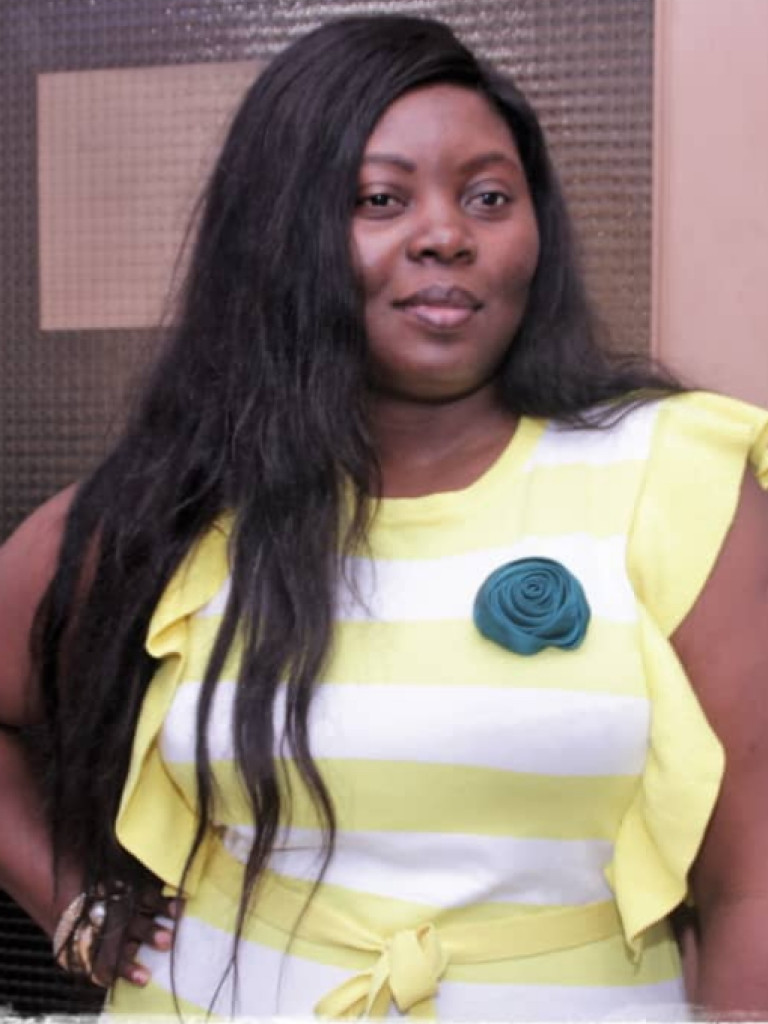
Doreen Andoh
- 2019
- Press Fellow
Doreen Andoh is a Science Journalist from Ghana and she has special interest in health and environment. She is a senior reporter with the biggest selling newspaper in Ghana since 1950 and the foremost brand of the Graphic Communications Group Limited, the Daily Graphic. She is a proud alumna of the Ghana Institute of Journalism who graduated with a BA in communication studies. 1. Why did you choose to become a science journalist? I did not make deliberate decision to specialise in or become a science journalist. I coincidentally found myself doing a lot of science reports, especially on health and environment during the early years of my journalism career and I gradually I became quite vested, knowledgeable and passionate about science reporting. Over the years my love and passion for science reporting upsurged due to the impact such reports made on people and society coupled with the satisfaction it brought. The many feedbacks in the form of emails I received from my readers appreciating the impact a health or science report i did had on them and they demanding to know more about something I reported about not only brought me job satisfaction but also encouraged me to want to know more and build on my capacity to remain relevant to my readers and the world at large. I began to see that development communication that most journalist desire to do was to a large extent rooted in science journalism. Again I gradually begun to feel the need to understand issues of science better to facilitate more development communication when I realised from reading around that the solutions to almost all the challenges the world and Ghana my motherland were saddled with, such as building resilient cities; climate change; housing; provision of potable water; clean energy; waste management; robust and responsive healthcare systems among many others were all rooted in basic science. I also came to appreciate the fact that science is the foundation of any sustainable development and a healthy productive population, but without the involvement of all stakeholders, particularly, the larger public, sustainable development will remain an illusion. However communication gaps between scientists, public and government had been identified as one of the major reasons slowing scientific research commercialisation and the application of science to facilitate sustainable development. So I felt that becoming a science journalist I could help to bridge such communication and information gaps as my contribution to national and global development. 2. What role do science and science communication play in your country? In Ghana today, Science, has been identified as one of the major solution to almost all development challenges in the country but over the years, science commercialisation had been mystified as something difficult and impossible and this position by ordinary Ghanaians and some politicians was hindering science application to a large extent. Science communication is, therefore, helping to demystifying complex scientific issues and explain the impacts -be they positive or negative- of scientific discoveries on the lives of ordinary people and the society at large. For example, it is no secret that Ghana is struggling with environmental issues and the resulting public health risks that goes together with the country’s pursuit of economic growth. The few who are ready to apply basic science in their own small ways or abide by scientific policies also depend so much on journalists for scientific information but also in its simplest form that will facilitate application. I must acknowledge that science journalism is doing well in that regard. 3. What are the main challenges of science journalism in your country? The lack of adequate scientific information and understanding is a major challenge. Due to the fear of being misquoted among other worries, scientist shy away from granting them interviews to journalists. Again scientists are often unable to communicate their works to the understanding of journalists and so either a good scientific breakthrough will remain on the shelves or will be communicated inadequately. Opportunities for capacity building for science journalists are not available and most newsrooms are not ready to fund such capacity building and so science journalists depend on national and international fellowships to remain relevant. 4. Where do you see the big societal transformations in the future? What scientific research/discovery will change our world? Ghana and Africa continue to struggle with a number of development challenges bordering on science but the solutions seem to be a mirage. These issues include diseases, vaccines, quality and affordable healthcare services, decent and affordable housing, waste management, resilient cities, climate change, transportation, clean energy just to mention a few. So from where I stand as a Ghanaian and an African, I think a number of big transformations and discoveries in relation to the above mentioned challenges were required. Because of globalisation, although advanced economies might be far ahead in terms of societal transformation based on science, as long as Africa continues to lurk behind the international community as a unit still have a long way to go. 5. What book, movie or song has radically changed your perspective? And why? A movie I watched on how bombs Hiroshima and Nagasaki brought down these Japanese cities to near ashes and how these cities recovered quickly by applying science to accelerate development. The movie and the opportunity to visit Nagasaki made be believe in resilience science and also believe that every form of development and resilience is achievable with the application of science, no matter the situation, be it extent of damage or under development. Again as a science journalist, Larry King’s book- How to talk to anyone, anytime ,anywhere: the secrets of good communication- helped me to break the fear of approaching scientists, which had previously been a challenge due to the fact that scientists and other good sources often were not comfortable speaking to Journalists and vice versa.